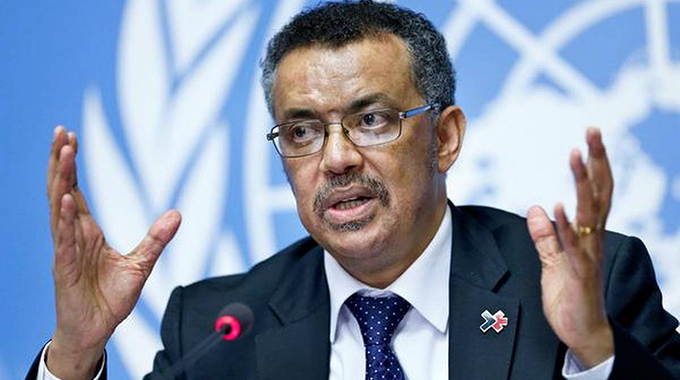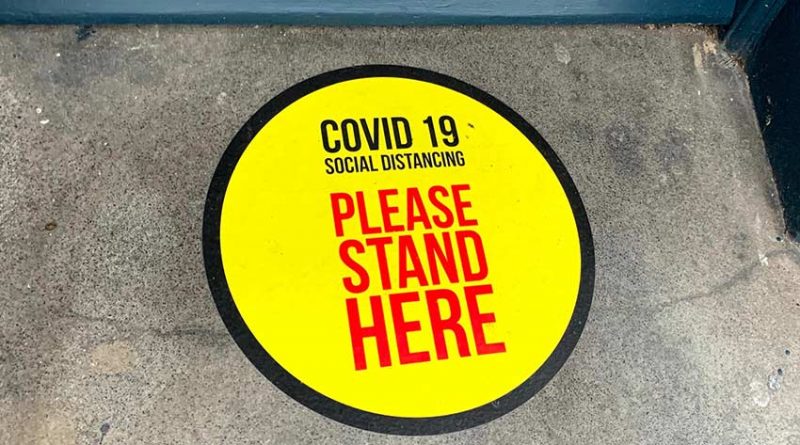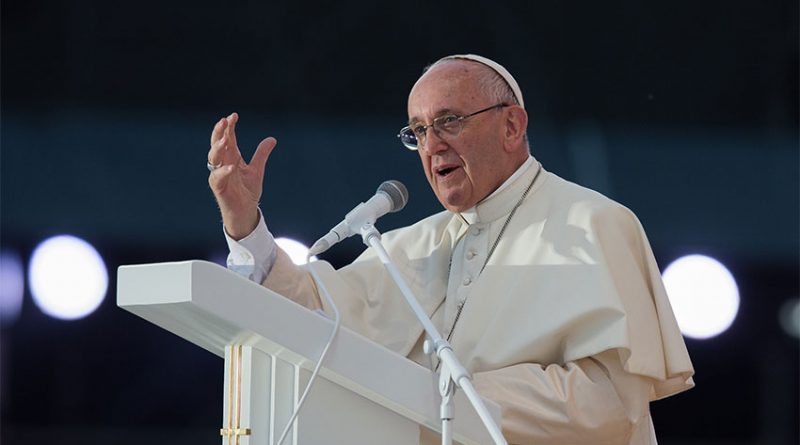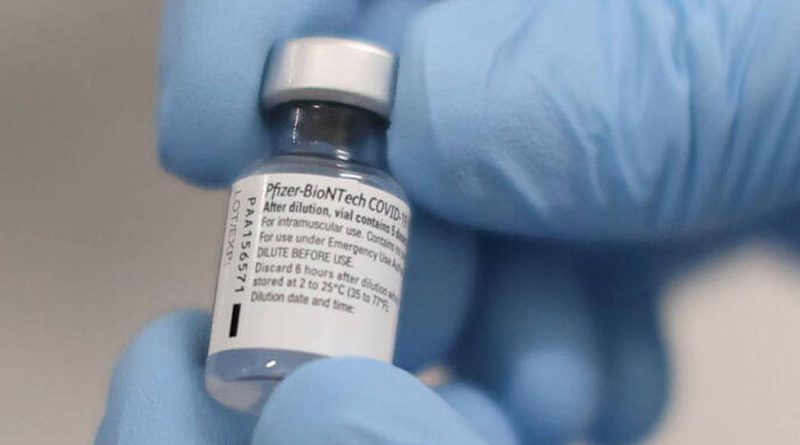THE head of the World Health Organization, marking a year since the first cases of the novel coronavirus was reported by China, urged countries to ensure that vaccines are made available to people at risk everywhere, not just in rich nations.
Tedros Adhanom Ghebreyesus, WHO director-general, appealed for $4 billion to buy COVID-19 vaccines for distribution in lower and middle-income countries through the COVAX vaccine facility.
“This is the challenge we must rise to in the New Year,” Tedros said in a video message issued a day before the first anniversary of China reporting the first cases of pneumonia of unknown origin to the U.N. health agency.
“Vaccines offer great hope to turn the tide of the pandemic. But to protect the world, we must ensure that all people at risk everywhere – not just in countries who can afford vaccines – are immunised,” he said.
He also urged countries to combat conspiracy theories and attacks on science, saying “The choice is easy,” and the world can “walk the last miles of this crisis together, helping each other along the way, from sharing vaccines fairly, to offering accurate advice, compassion and care” to all who need them.
The COVAX alliance, which aims to secure fair access to COVID-19 vaccines for poor countries, said on Dec. 18 it had agreements in place for nearly 2 billion doses, roughly doubling its supply, with the first deliveries due in early 2021.
A WHO-led international mission of experts is due to visit China in the first week of January to investigate the origin of the SARS-CoV-2 virus that emerged in the central city of Wuhan in December 2019.
More than 81.84 million people have been reported to be infected by the novel coronavirus globally and 1,788,443 have died, according to a Reuters tally.
“The likely scenario is the virus will become another endemic virus, a virus that will remain somewhat of a threat but a very low-level threat in the context of an effective global vaccination programme,” Mike Ryan, WHO’s top emergency expert, told a press conference on Monday.
Source – Thomson Reuters Foundation
CANADA has expanded enhanced screening and monitoring measures to travelers arriving from South Africa, citing the rise of a more infectious variant of COVID-19 in that country, similar to one that has emerged in the United Kingdom.
This follows a move on Wednesday by Prime Minister Justin Trudeau to extend to January 6 a ban on passenger flights arriving from Britain, citing the variant. It also announced added screening for travellers, from Britain.

No cases of the variant have been found in Canada so far, Health Canada said in a release, noting it had tested over 25,000 samples. “All travellers who have been in the United Kingdom or South Africa within the period of 14 days before the day on which they seek entry into Canada will be subject to secondary screening and enhanced measures,” Health Canada said.
Those measures include “increased scrutiny of quarantine plans,” it said.
Canada also updated travel advisories for both the United Kingdom and South Africa to advise extra caution. Health officials continue to advise against all non-essential international travel.
Canada has so far reported 528,354 cases of COVID-19, including 14,597 deaths.
The government separately announced on Thursday that the first doses of the Moderna Inc COVID-19 vaccine had arrived in Canada. It approved the vaccine on Wednesday and said it expects 168,000 doses by end of the year.
Source – Thomson Reuters Foundation
Pope Francis in his Christmas message said political and business leaders must not allow market forces and patent laws to take priority over making Covid 19 vaccines available to all, condemning nationalism and “the virus of radical individualism”.
In a sign of the times, Francis delivered his traditional “Urbi et Orbi” (to the city and the world) message virtually from a lectern inside the Vatican instead of from the central balcony of St. Peter’s Basilica before tens of thousands.
The pandemic and its social and economic effects dominated the message, in which Francis called for global unity and help for nations suffering from conflicts and humanitarian crises.
“At this moment in history, marked by the ecological crisis and grave economic and social imbalances only worsened by the coronavirus pandemic, it is all the more important for us to acknowledge one another as brothers and sisters,” he said.
Stressing that health is an international issue, he appeared to criticise so-called ‘vaccine nationalism’, which U.N. officials fear will worsen the pandemic if poor nations receive the vaccine last.
“I beg everyone, heads of state, companies and international organisations to promote cooperation and not a competition, to find a solution for everyone – vaccines for all – especially for the most vulnerable and needy in all areas of the planet,” he said.
“The most vulnerable and needy must be first,” he said, in the Vatican’s Hall of the Benedictions, with only about 50 Vatican staff wearing masks sitting along the long walls.
“RADICAL INDIVIDUALISM”
“We can’t put ourselves before others, putting market forces and patent laws before the laws of love and the health of humanity,” he said. “We cannot let closed nationalisms block us from living like the true human family that we are.”
Francis also appeared to criticise people who have refused to wear masks because it violates their freedom, an attitude that has become widespread in nations such as the United States.
“And neither can we allow the virus of radical individualism to triumph over us and make us indifferent to the suffering of other brothers and sisters,” he said.
Italians are under a nationwide lockdown for much of the Christmas and New Year holiday period. The restrictions mean people are not able to go to St. Peter’s Square or the basilica for papal events, all of which have been moved indoors.
Christmas is above all a time to help others because Jesus himself was born a poor outcast, Francis said on Thursday night at his Christmas Eve Mass, which started two hours early so the few participants could get home in time before a 10 p.m. curfew.
“May the Child of Bethlehem help us, then, to be generous, supportive and helpful, especially towards those who are vulnerable, the sick, those unemployed or experiencing hardship due to the economic effects of the pandemic, and women who have suffered domestic violence during these months of lockdown,” he said in his Friday address.
He then called for peace and reconciliation in Syria, Yemen, Libya, Nagorno-Karabakh, South Sudan, Nigeria and Cameroon and Iraq, which he is due to visit in early March.
He also asked to comfort those suffering from humanitarian crises or natural disasters in Burkina Fasso, Mali, Niger, the Philippines and Vietnam.
Source – Thomson Reuters Foundation
AFRICA needs about $9 billion to finance enough of COVID-19 vaccines to halt the pandemic on the continent, but a bigger problem is accessing that supply amid the global race for doses, an African Export Import Bank official has said.
Hippolyte Fofack, Afreximbank chief economist, told Reuters the Cairo-based bank and other development finance institutions are working with the Africa Centres for Disease Control and Prevention (CDC) to obtain vaccines for the novel coronavirus.
But African nations cannot compete with wealthier governments that have secured huge supplies of inoculations, he said.

“If the supply of COVID-19 vaccines is left to (the) market, many developing countries will be essentially rationed out of it, Africa included,” he said. “The key constraint is the supply of vaccines. Even if Africa had 100 billion dollars, we will not be able to access enough doses.”
He said African countries will need to ask wealthy governments for excess vaccines.
Afreximbank estimates that Africa will need to spend about $5.8 billion on purchasing vaccines and about $3.3 billion to deliver them to reach the target of vaccinating at least 60% of 1.3 billion Africans beginning in 2021.
Some funding will come from COVAX, a global alliance co-led by the World Health Organisation that aims to secure fair access to COVID-19 vaccines for poor countries.
COVAX said last week it had agreements in place for nearly 2 billion doses, with the first deliveries due in early 2021, but it was unclear how many of those would go to African countries.
South Africa said earlier this month it expects to receive its first batch of vaccines from COVAX in the second quarter of 2021.
Fofack said he hopes that vaccinations will begin on the continent in the second quarter of 2021. – Thomson Reuters Foundation.




